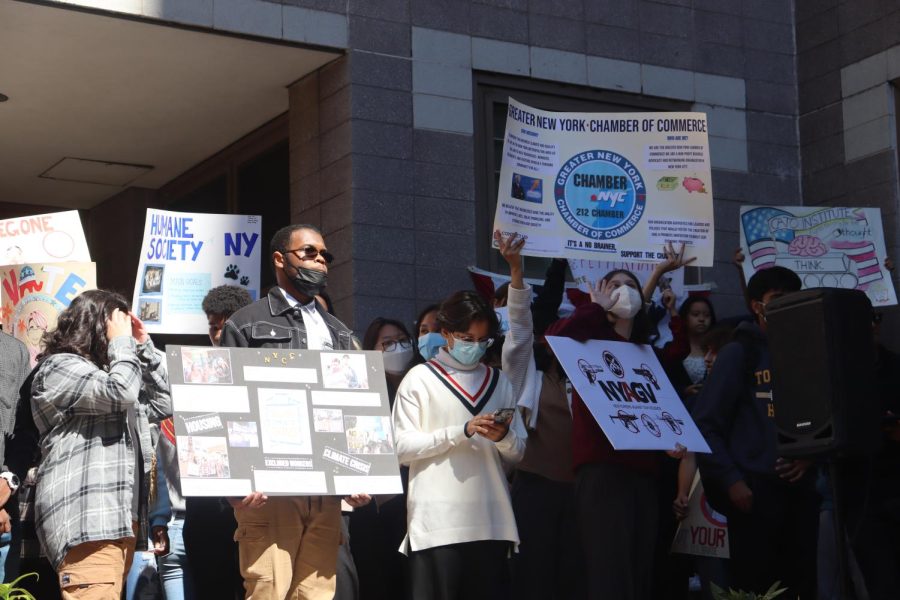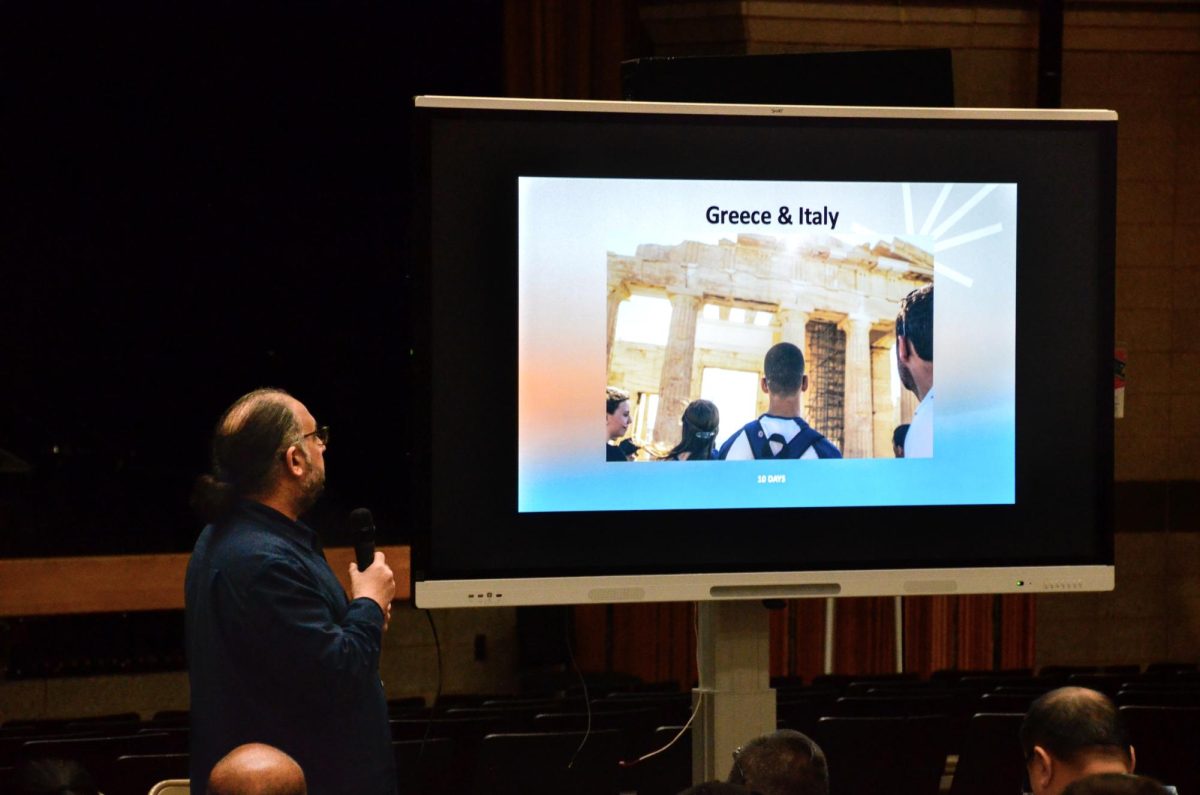
On October 25, Special Interest groups showcased their political views, goals, and endorsements to garner support and donations. The event took place in the courtyard, spanning all lunch bands and open to all interested students—or those who were simply finding ways to fill out their graphic organizers.
While the City Council and Republican Presidential candidates are the primary focus of the 2023 Election Simulation, both in real political processes and at Townsend Harris, the Special Interest Groups play a fundamental role, bringing attention to and endorsing various candidates. More so than that, Special Interest groups represent the ideologies of both the party they may be affiliated with and the voting population.
History teacher and supervisor of various Election Simulation components, Mr. Joshua Krinsky, spoke about the function of the event. “This event is an opportunity for interest groups and super PACs to be at the forefront of the election simulation. Typically, the candidates and the campaigns are the ones who get the most of the headlines and the attention. […] Both of the newspapers are going to be covering this event,” he said.
While Mr. Krinsky recognizes that, in actual elections, Special Interest groups have a more “tangible effect.” He believes that holding this event for Townsend Special Interest Groups allows for them to “do a good job convincing voters to get out on Election Day.” Encouraging voters to register is a lucrative way to draw attention to a Special Interest group’s campaign.
Special Interest Groups may exist chiefly to support one candidate. American Exceptionalism, a Republican Special Interest group, does this by endorsing presidential candidate Vivek Ramaswamy and following his policies throughout the race. “Right now, we are just taking donations from any of the underclassmen who want to donate and helping them fill out their graphic organizers,” treasurer and policy analyst Michael Leong explained.
Another Special Interest Group, American Families Association, plays a broader role in representing a spectrum of right-leaning ideologies. “Our special interest group […] believes in spreading moral values. We are looking forward to funding other candidates through fundraisers,” they explained. Like campaigns, special interest groups hold fundraisers to gain profit that they can use to allocate for their advertisements or spread awareness of candidates’ campaigns.
In the last few weeks of Election Simulation, deciding the winner is the culmination of different facets—notoriety, funding, politics. Regardless, “being a symbol of issues people care about,” in either case of candidate or group, according to the New York City Democratic Socialist Association, is a vital part of that.



























